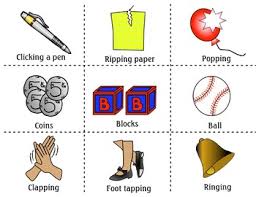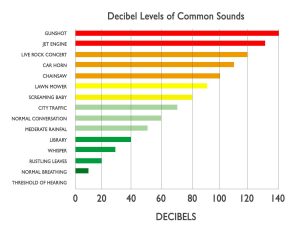 Do you wake up in the morning and immediately notice the irritating sound of the fan blowing in the distance? What about the faint hum of the bathroom light that wasn’t turned off after your family member used it last? How about the ticking of the clock you have hanging on the wall? If these are common experiences for you, or if you can relate to them in some way, you may be suffering with a syndrome called misophonia. You may have never even heard of misophonia before, but that’s okay. It is a very rare syndrome and disorder that has less than 200,000 cases in the United States alone. That’s just about 0.1 percent of the population. No wonder why you’re unfamiliar with it! But this means you are not alone in what you may be experiencing. If common sounds make you go crazy and you are unsure of why, you may have misophonia. Let’s take a deeper look into this syndrome in order to better understand what you may be living with.
Do you wake up in the morning and immediately notice the irritating sound of the fan blowing in the distance? What about the faint hum of the bathroom light that wasn’t turned off after your family member used it last? How about the ticking of the clock you have hanging on the wall? If these are common experiences for you, or if you can relate to them in some way, you may be suffering with a syndrome called misophonia. You may have never even heard of misophonia before, but that’s okay. It is a very rare syndrome and disorder that has less than 200,000 cases in the United States alone. That’s just about 0.1 percent of the population. No wonder why you’re unfamiliar with it! But this means you are not alone in what you may be experiencing. If common sounds make you go crazy and you are unsure of why, you may have misophonia. Let’s take a deeper look into this syndrome in order to better understand what you may be living with.
What is Misophonia?
As mentioned above, misophonia is a rare noise disorder that affects a very small portion of the population. Because of this, identification was difficult at first and often grouped in with anxiety disorders. Thankfully, medical advances and technological improvements have helped doctors and psychologists identify exactly what misophonia was. Misophonia is based solely on external factors and triggers that directly cause your symptoms. Some symptoms individuals may be worse than others and this solely depends on your environment. If small daily noises significantly aggravate you and lead to symptoms or feelings of rage, panic, or even depression, you may be dealing with misophonia.
Common Triggers of Misophonia
 Misophonia triggers vary vastly from person to person and therefore it may be difficult to comprise a comprehensive list of trigger noises or sounds. However, after studies have been conducted and statistics were measured, some sounds can be seen as more triggering than others. These noises can include the sound of chewing, a dripping faucet, yawning, teeth sucking, clock ticking, tapping, and even throat clearing. How people with misophonia feel can be related to when thinking of the sound of nails across a chalkboard. This irritated and squeamish feeling is what those who suffer deal with on a daily, but it causes them significant frustration and emotional results.
Misophonia triggers vary vastly from person to person and therefore it may be difficult to comprise a comprehensive list of trigger noises or sounds. However, after studies have been conducted and statistics were measured, some sounds can be seen as more triggering than others. These noises can include the sound of chewing, a dripping faucet, yawning, teeth sucking, clock ticking, tapping, and even throat clearing. How people with misophonia feel can be related to when thinking of the sound of nails across a chalkboard. This irritated and squeamish feeling is what those who suffer deal with on a daily, but it causes them significant frustration and emotional results.
Treatment Options
There are various potential treatment options available to you if you suffer from misophonia. The options depend on how severe or significant your case is and the approach that your doctor or phycologist recommends most. The most typical treatment options include wearing earplugs, behind ear sound projectors, or partaking in therapies like cognitive behavioral therapy or even tinnitus retraining therapy. The best way to identify the treatment that works best for you is by taking with your doctor to determine what situations might improve your condition most. There are many treatment options not listed above, and plenty other ones are forming across the medical community.
Seeking Help
If you believe that you may be suffering with misophonia, Steven Katz LCSW, a top misophonia specialist in NYC, can help you out. Be sure to contact us at the Misophonia Cognitive Center to schedule an appointment today. We can help you identify whether or not you may be suffering from misophonia and the best potential treatment options for you. Stop living in fear of all the beautiful noises around you and seek help today!
